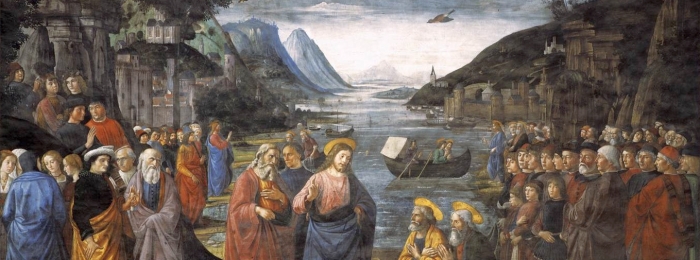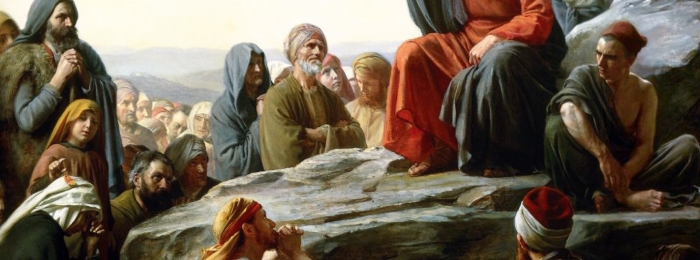“[W]e inevitably interpret the Sermon on the Mount for our own time and place. We are neither ancient Jews nor ancient Christians. We do not live within the first-century world of Jesus or Matthew or share in their culture or participate in their forms of government. We live rather in the age of capitalism, democracy, secularization, and technology—modern realities that…
Read More
“The Sermon must once again become a basic text and primary source of moral theology, ahead of the Decalogue, natural law, or an assemblage of norms or rights established by pure reason. In the face of the rationalism of our times, this demands of us an audacious faith in the solidarity of the Gospel, both at the intellectual and at…
Read More
The church of the first three centuries offers up a reading of the Sermon on the Mount that is “literal when possible.” Jesus offers—to all who hear–commands to be obeyed, but joyfully with anticipation, as part of a larger vision of transformation (through virtue) into a greater and greater likeness of God. Near the end of the fourth century, a…
Read More
“Broadly speaking, in the patristic period, both in the East and West, the Sermon was not perceived as problematic. Quite the contrary, the Sermon was seen as paradigmatic and foundational to understanding Christianity itself.”—Jonathan Pennington[1] Daniel Harrington and James Keenan render a service to us all by helping bridge the gap between moral theology and New Testament studies. In their…
Read More
I am ready to leave the “introductory remarks” to the Sermon the Mount, and begin the second phase of our study: a deep dive into the scholarly background and history of interpretation. But one last introductory post is needed. Since I have argued that the Sermon on the Mount paints a new vision, sets out a new lifestyle, and invites…
Read More
“What do you want?” These are the first words of Jesus in the Gospel of John (John 1:38). What a challenging question! And to you and me, the reader, he asks it again and again–in a number of ways. To a man in need of sight (Mk 10:51; Lk 18:41), and to disciples who struggled with spiritual vision (Mt 20:32;…
Read More
“His divine power has granted to us all things that pertain to life and godliness, through the knowledge of him who called us to his own glory and excellence by which he has granted to us his precious and very great promises, so that through them you may become partakers of the divine nature, having escaped from the corruption that is…
Read More



